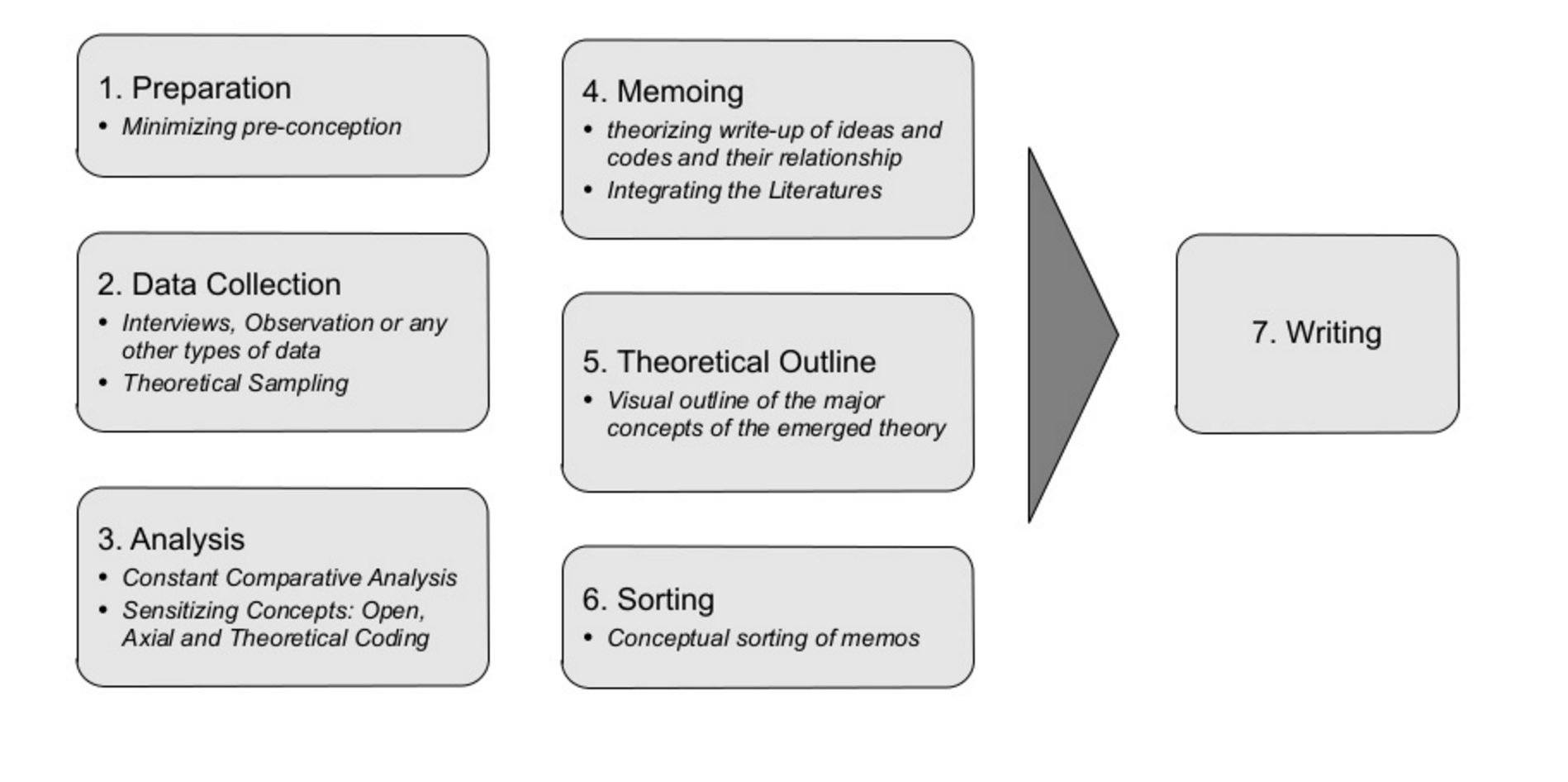This week’s topic provided a broad overview of grounded theory (GT) and its evolution from first to second generation grounded theory, referencing also emergent third generation GT. We had the opportunity to hear first-hand from two recent PhD graduates, Dr. Hamid Pousti and (almost Dr.) Joanne Mihelcic on their experience of using GT in their research project. This knowledge was further enhanced by my fellow presenters during their critical review of GT as part of their assessment presentation for workshop 10.
From the sessions, I have understood that GT is one qualitative method among many others, and can be described as a “general inductive method possessed by no discipline or theoretical perspective or data type” (Glaser, 2005). In GT study, concepts are generated from empirical data rather than from existing literature. Barney Glaser, the originator of the classical GT methodology, has stressed the importance of that a GT-researcher avoids preconceptions and remains open-minded to what actually appears in the research field.
This means, unlike conventional quantitative study where literature review is conducted to refine the research question/determine gaps and identify a suitable design/data collection method for a planned study, GT employs a more “detective” like approach.
The following are the stages of GT referenced in(Adolph et..al, 2008) for an IS research study:

Stages of a Grounded Theory Study. Source: Odis, E. Simmons
The constant comparison is the “heart of grounded theory“. As codes are developed they are compared with previous codes from within the same interview and from other interviews. Codes are progressively clustered into categories. This is facilitated by the concurrent and iterative collection of data and analysis.
Data collection continues until all categories are saturated, that is, when further collection of data indicates no new categories or the need for the expansion of existing categories and all data fits into the existing categories.
For my understanding, I could summarise my understanding of this topic as follows:
- There are multiple variants of grounded theory: Glaser focused on developing researcher’s creativity while Strauss was interested in looking at ways for formalizing and proceduralising GT. We must be clear about which variant we are following.
- In GT, the researcher should not attempt to force the data into a preconceived theory rather than let the problem and theory emerge from the data.
- Exclusive use of semi-structured interviews does not do justice to grounded theory. Including interviews, document analysis, and participant observation is more desirable for data collection.
- Avoid premature closure – This causes the theory to be incomplete (categories are not saturated) to lack density and to inadequately cover the behavioural variations
- There does literature review fit in?
- We can conduct a minor literature review upfront to learn some basic terminology (be informed and focused of the research area – It is also necessary to conduct early literature review to find out if the planned study, or similar study has been published before. Also, it gives a background to and motivate the interest for the particular research area.)
- Nest, we can conduct a major literature review towards the end in order to tie the findings with previous literature.
Finally, I would like to conclude by stating that one can be easily challenged when using GT based research method as it is not about giving theory status to hearsay and anecdotal stories and thus, the research has to be carried out rigorously in order to avoid the danger of it being classifies as journalism (Adloph et..al, 2008).
References:
Adolph, S., Hall, W., & Kruchten, P. A methodological leg to stand on: lessons learned using grounded theory to study software development. In Proceedings of the 2008 conference of the center for advanced studies on collaborative research: meeting of minds (p. 13). ACM, 2008.
Glaser B.G. The grounded theory perspective III: Theoretical coding. Mill Valley, CA: Sociology Press; 2005.
Van Niekerk, Johanna C., and J. D. Roode. “Glaserian and straussian grounded theory: Similar or completely different?.” Proceedings of the 2009 Annual Research Conference of the South African Institute of Computer Scientists and Information Technologists. ACM, 2009.









